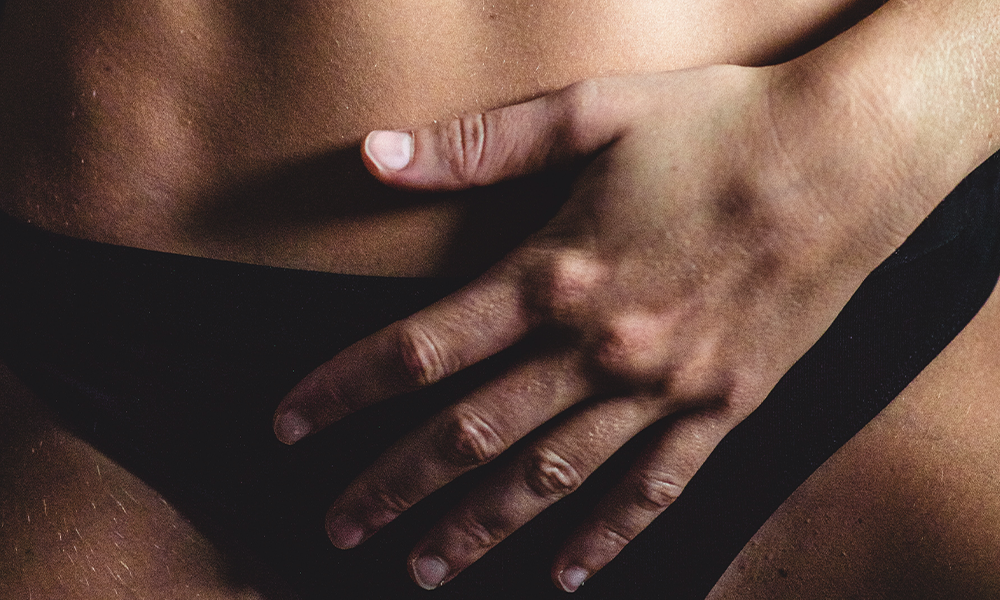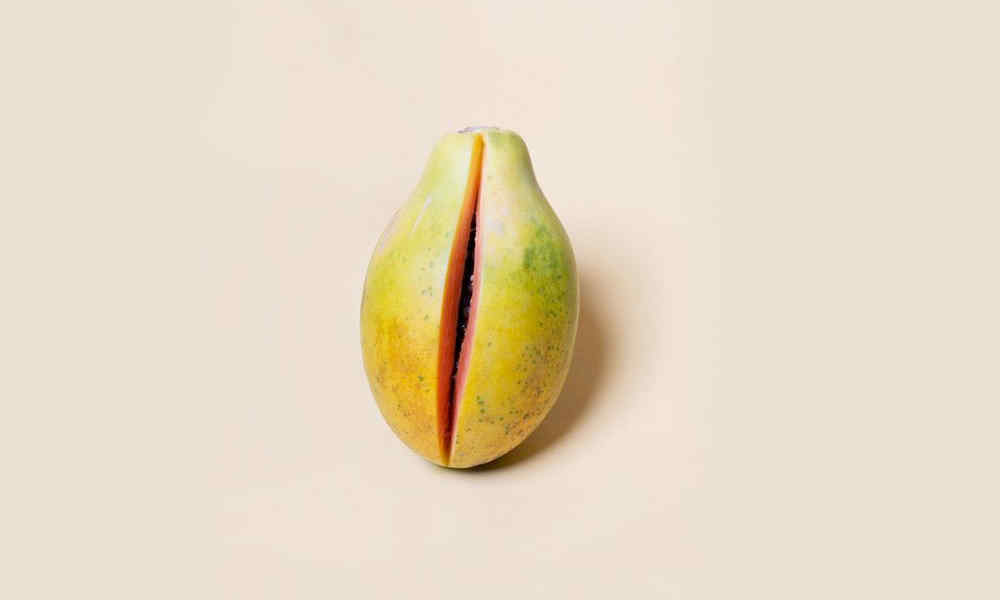I can hear some of you say ‘that’s the last thing on my mind now’, and other’s saying ‘Yes, WHEN!’ and other’s saying ‘I’ve tried, and it feels different, will it ever be normal?’ and still others saying ‘I’m worried about what my partner will think of me now’.
First things first, each and every person’s sex life is completely different, so never compare yourself to others when it comes to sex. There is no ‘normal’. Many women find that their sex life completely changes after a baby, and attitudes towards sex change. Some women are insatiable, whilst others may avoid sex due to feeling weird about their body, totally knackered and confused by sensations like getting turned on whilst breastfeeding (which is actually quite common – one theory is that the breastfeeding hormone oxytocin is the same one released during orgasm). One thing is for sure, you should never feel pressured to have sex, nor should it be uncomfortable. Yet, a recent study in Australia showed that a vast majority of women do have uncomfortable sex after having a baby. I suggest that you read it. Now, it is not meant to put you off, but the results are pretty interesting, and I believe that if you know your risk factors, you can be more aware and proactive in seeking help, and treating pain.
Why are so many women having painful sex after childbirth? Personally, I think it is because these women don’t receive advice on how to return to sex comfortably and safely. Risk factors include: having had a c-section, or a vaginal birth with forceps/suction to help get the baby out, a vaginal tear or are breastfeeding (so, pretty much everyone that’s had a baby). If this is you, you might like to read the following advice to decrease the risk of painful sex.
When can I return to sex?
It’s really up to you and your partner. Most health professionals suggest waiting until six weeks post partum. You’ll be bleeding for most of that time, and are at risk of infection of the wound (if you’ve had vaginal birth) or in the uterus. If you’ve had a vaginal tear or episiotomy (a cut to the vaginal wall), wait six weeks at least for the wound to heal.
Some things to consider:
- Fatigue, hormones and stresses of a being a new mum, may decrease your libido. Post-natal depression can decrease your libido too. It may be worthwhile talking to your partner sooner rather than later about this (maybe direct them to this article) to help them understand, and to avoid feeling rejected.
- You will probably need more stimulation and foreplay initially to get back into it. Arousal is very important in decreasing painful sex. Talk to your partner about this. You both may need to spend a bit more time with foreplay. Because we all have so much time on our hands when we have a newborn right???
- Sex does not have to be penetrative. External stimulation (by yourself and with your partner) can be just as satisfying and a great way to re-explore the area or ‘dip your toe in’ before taking the full plunge.
- Your pelvic floor muscles will be weaker, whether you’ve had a vaginal or caesarian delivery. Your pelvic floor plays a big role in sexual satisfaction, but also in sexual comfort. See a women’s health physio at 6 weeks post natal for a check up and learn how to improve your pelvic floor function.
- The lack of oestrogen due to breastfeeding will decrease your natural lubrication, and vaginal dryness can feel much like sandpaper. Use lube, and lots of it! Anything you can put on your mouth lips, you can put on your vaginal lips:
- coconut and olive oils – just remember to put a towel down
- papaya ointment
- lubes that aren’t waterbased (water tends to dry you out further). Olive & Bee, Yes, Sylk, Pjur, Uberlube are all great
- your brightest lipstick (just kidding. LOL)
- If you’ve tried buckets of lube and still find that you’re quite dry, oestrogen cream applied to the vagina may help. Speak to your GP.
I’ve had a caesarean, what can make it more comfortable?
Your abdominal wound may cause some discomfort initially. This may be due to tethering of connective tissues, nerves and skin around the area and it can become very sensitive and tingly. Start some self massage to the wound at 6 weeks post birth. Use a moisturiser or oil and deliver gentle circular movements over the scar for a few minutes every day. Or, do it in the shower.
Choose positions that are comfortable for you. Doggy style may help decrease pressure off the wound. Use a small towel or cushion over the wound in missionary position, or cradle the cushion over the wound when you’re on top to control the movement and pressure on the scar.
Some women find that they feel ‘tighter’ or sorer in the vagina on penetration after a c-section. This may be due to a spasm of the pelvic floor muscles. These muscles can tighten up and be sore to touch. This is also called ‘overactive’ or ‘hypertonic’ pelvic floor muscles and is quite common. See your pelvic floor physio to address this as continuing with painful sex can make it worse.
Similarly, your abdominal muscles may tense up before or during sex. Allow your tummy to realx and bulge out, none of this ‘sucking in to look skinny’ business. That will make things worse. Use whatever is available to you to allow you to relax; hot packs to your tummy, essential oils, a hot bath, 3 bottles of wine….
I’ve had a vaginal birth, what can make it more comfortable?
When a baby gets pushed through the relatively small opening of the vagina, the pelvic floor muscles, skin and nerves are put through the wringer. Your pelvic floor muscles have this amazing ability to stretch around 2.5 times their resting length without failing. Amazing! They will be a little stretched after childbirth, and need some time to recoil.
Vaginal tearing is very common in women that deliver vaginally. 85% of women will sustain a vaginal tear. Normal healing includes scar tissue forming. Sometimes this scar tissue may actually heal too tight, or produce a big, jagged scar, and the area around the scar can be sensitized. Perineal scar massage can help. Grab some coconut oil or papaya ointment and gently massage the scar (both on the perineum and the entrance to the vagina) for a few minutes each day. If you’re not sure about how to go about this – see your pelvic floor physio for help.
As above, in response to pain, the pelvic floor muscles can become overactive or spasm, causing pain on touch or penetration. Seek help from your women’s health physio to learn how to rehab these muscles.
Will it feel different to me and/or my partner?
As above, your muscles and tissue will be stretched, and it takes some time for this area to recover. If the area feels numb for the first couple of weeks, that’s totally normal as the nerves in the area may have been compressed or stretched during delivery. If sensation does not start to return after a couple of weeks, take yourself to your GP. Doing too much (lifting, high impact exercise, spending too much time on your feet) in the first 12 weeks can hinder healing. Along with rest and recovery, the pelvic floor muscles need work to strengthen them, bulk them up and improve their function. Start your pelvic floor exercises 24 hours after delivery, progress them weekly, and keep doing them……..for the rest of your life.
So yes, there has been a change in your vaginal structure, but sensation and pelvic floor function will improve, as long as you are doing the right things. Many women claim that sex after having a baby is actually better than before!
Most women I’ve spoken to claim that their partner does not notice any change in sensation, and often, the partner is more worried about hurting their partner during sex. So, take it slow, talk to each other openly, and if something feels not quite right, seek professional help.
Some other things to consider:
- Contraception – beware: you can still get pregnant, even if you are breastfeeding and your period hasn’t returned. Talk to your doctor about appropriate contraceptive for you.
- Back pain – due to the changes in your body during pregnancy and childbirth, back and pelvic pain is very common. Some sexual positions may make it worse – read this and see a women’s health physio.
- Sore boobs – big, red, swollen leaky boobs can be uncomfortable during sex. You may find that wearing a supportive nursing bra during sex more comfortable. Or pull your abdominal tubigrip up over your boobs to keep them in place
- Pubic bone pain – A painful pubic symphysis (or PGP) can linger after childbirth. Try doggy style, ensuring your weight is even through both legs, and your spine is straight.
- Prolapse – sometimes a vaginal prolapse can be sore with sex, often if it is dry or irritated from rubbing on underwear. Try lube and different positions and see a pelvic floor physio. Vaginal oestrogen and/or a pessary may help.
The bottom line is; sex shouldn’t be painful. If it is, shut up the vaginal shop, put up the ‘temporarily closed for business sign’ and see your GP and pelvic floor physio.
– the vagina physio








